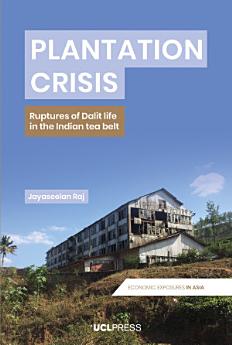Plantation Crisis: Ruptures of Dalit life in the Indian tea belt
About this ebook
Tea production in India accounts for 25 per cent of global output. The colonial era planation system – and its two million strong workforce – has, since the mid-1990s, faced a series of ruptures due to neoliberal economic globalisation. In the South Indian state of Kerala, otherwise known for its labour-centric development initiatives, the Tamil speaking Dalit workforce, whose ancestors were brought to the plantations in the 19th century, are at the forefront of this crisis, which has profound impacts on their social identity and economic wellbeing. Out of the colonial history of racial capitalism and indentured migration, Plantation Crisis opens our eyes to the collapse of the plantation system and the rupturing of Dalit lives in India's tea belt.
About the author
Jayaseelan Raj is Assistant Professor at the Centre for Development Studies, Thiruvananthapuram, India, and Fellow in the GRNPP project at the Department of Anthropology, School of Oriental and African Studies, London. He was recently awarded the New India Foundation Fellowship to write a book on Dalits and State in India. He is co-author of Ground Down by Growth (Pluto Press 2017 and Oxford University Press 2018).




